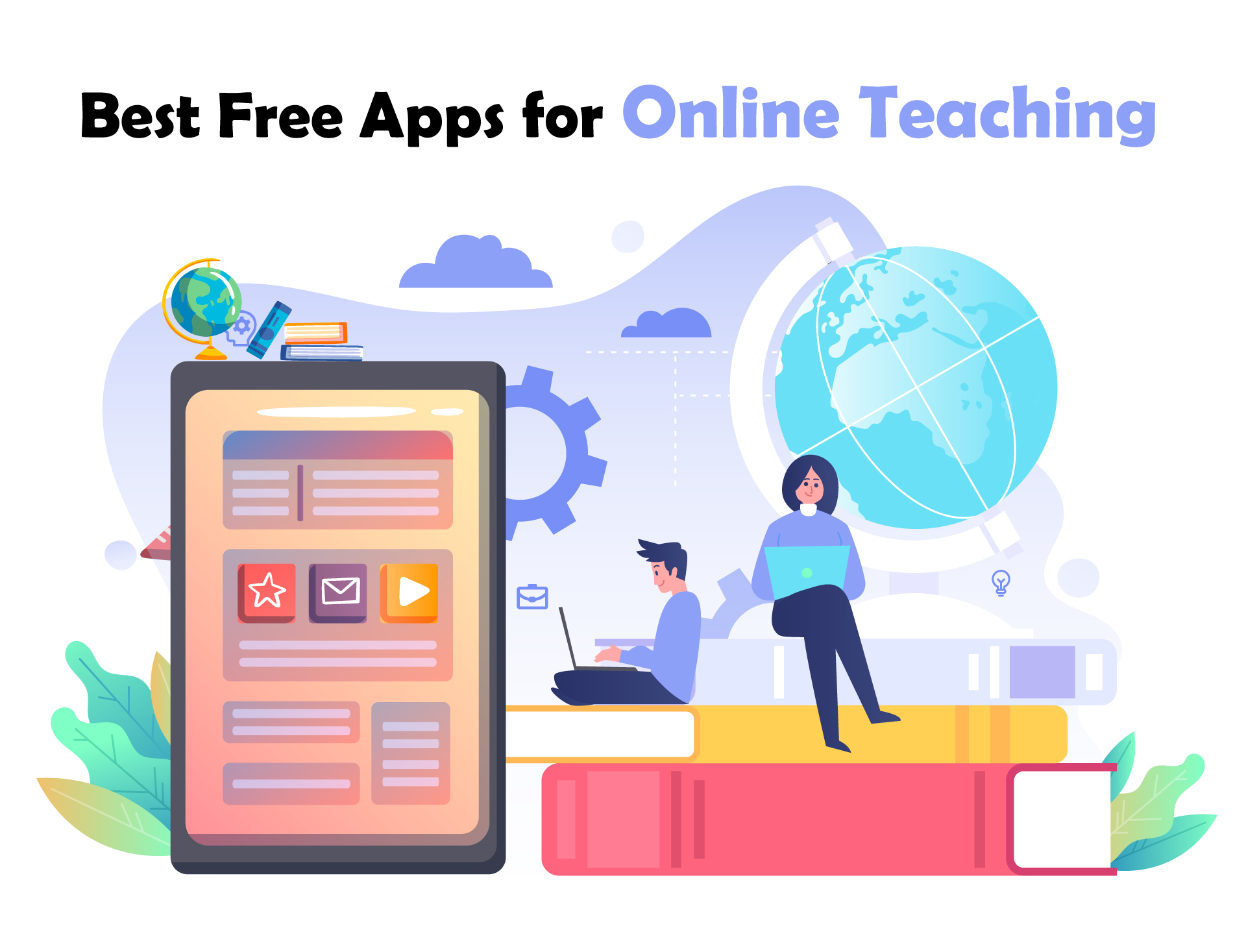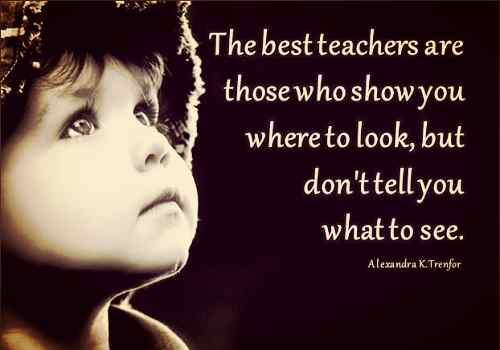Categories(658 Blogs)
Select Category
Watch Right Now
Teacher App - Class
Schedule & Attendance Management App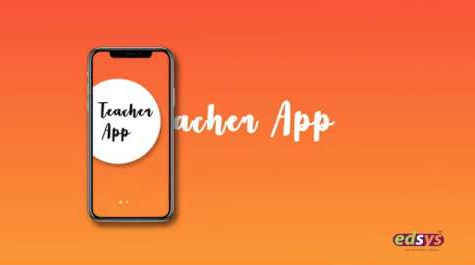
Parent App from Edsys
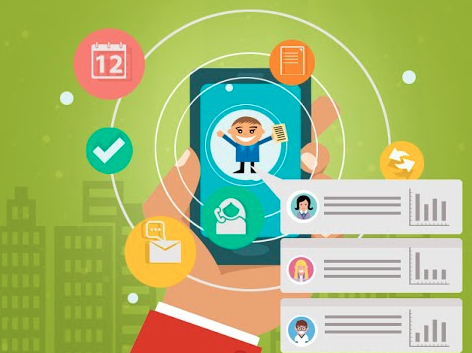
Best School Bus Tracking System
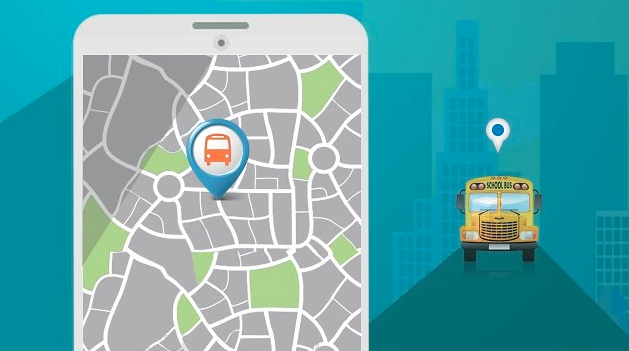
Cashless School - For Smart Schools of Tomorrow


50 Innovative Teaching Methods in Science
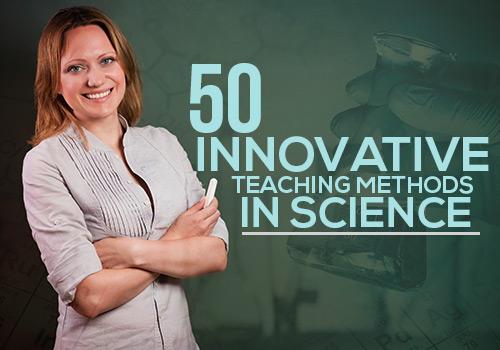
Student engagement and understanding of materials is given more emphasis in today’s education over spoon feeding the facts.
Therefore, using black-boards or the typical lecture methods are not adequate to teach science and other related subjects.
Many scholars and researchers have proposed advanced ideas and they claim that virtual teaching scenarios or simulations can help to build a better understanding of subjects amongst students.
Best Free Science Apps (Check it Now)
More than just conveying facts or findings in science, students will love to explore the world of science. These innovative teaching methods in science can substitute the typical teaching techniques to achieve the goal.
1. Hands on Learning:
This is the best teaching method invented so far that involves the active participation of students to experience scientific concepts than to just have an audience view.
Schools are promoting the use of low cost apparatus in classrooms to helps students to have hands on learning experience. It can be a string telephone to teach about sound and communication, matchstick mecanno to teach 3D structures, notched pencil to teach rotation motion or anything similar.
2. Story Telling
Students love to hear stories and therefore, storytelling is one of the best ways to get their attention in class.
Teacher can explain the facts of biology or the laws of physics in the form of stories. This is a mental organizer as human brains can remember stories than just plain facts. Some teachers present the whole concept as a story while some others use a story to open and end the session.
3. Role Play
This innovative method is becoming an integral part of science education as students can intellectually and physically involve through activities while learning a new concept.
Activities can be organized in classroom sessions where a group of students can take the role of atoms or molecules to study a chemical reaction or they can represent a scientist group to demonstrate the particular scientist’s laws.
4. Sports Based Learning
This is an interesting approach to learn problem-solving in physics or a stepwise method to study complex chemical reactions.
A game of football or cricket helps them to learn about the percentage, average or probability which can find its use in physics problems. Sports are mostly played in teams which also promote the importance of teamwork that helps them to synchronize better in group projects.
5. Visual clues
Using visual clues easily supplements auditory information and students can easily connect better with ideas.
The multi-sensory experiences improve their understanding and memorization. This includes drawings, diagrams, and pictures to assist theory and setting up examples to show its application side.
The sequence of lab procedures can be better taught using pictures with words approach.
6. Instructional Conversations
Building instructional conversations is a key method to teach science vocabulary. Let them talk in between the lectures about the experience they had with an application related to the topic of discussion.
This promotes their dialogue construction in science as they communicate using scientific and technical terms. Make this a classroom strategy to help students to easily learn science vocabulary.
7. Science Text Cards
This is an innovative teaching method to convey the science facts in an easy and organized way. In this activity, statements related to science concepts are written on index cards.
Students can work individually, pairs or in groups to sort the cards based on the given format. The formats include true/false,agree/disagree, matching pairs, classification, sequencing and more.
8. Word Games
This is a creative strategy to help elementary students to experience the language of science. Hangman, Pictionary, Dingbats, Bingo, Scrabble, Odd One Out, Charades, Trivial Pursuit etc. are the common games.
Playing these games using scientific terms helps the students to work closely with different hard to understand words and use them fluently in their subject.
9. Graphic Organizers
This teaching approach is helpful for students to interact with science in a more organized and structured way. Teachers can use different types of templates to represent the data according to the topic that is being handled.
A typical format for graphic organizer contains a central point from which different branches are formed and there may be sub-branches in certain cases. Arrows are used to point the direction or sequence of a process.
10. Word Parts
This teaching strategy is followed by teachers to educate the basics of science to elementary students. While introducing new scientific terms, they can reinforce the structure of words.
Students are asked to identify and understand prefix, suffix, and base word, and to relate their meanings. For example, metamorphosis — meta (large), morph (change), osis (process); photosynthesis — photo (light), synth (make), isis (process).
11. Social media
The different social media platforms can be used wisely to teach science to make the science classrooms more interesting and engaging. For instance, students can be asked to follow scientists in Twitter and share his/her new thoughts and findings in class or to use Feedly for improving the content of their research projects.
Students can also use Vine to document and to share science videos, Pinterest account for sharing images for research projects or writing prompts or WordPress class account for peer-to-peer learning.
12. Virtual science labs
There are many virtual science labs available online for free and therefore, this approach almost gives hands on experience of learning the subject without much expense.
Detailed diagrams, illustrations or close up pictures allow students to virtually get inside a plant or animal part without actually doing it. Dissections in biology can be studied thoughtfully with a virtual hands-on sensation without the problem of odour and similarly, experiment a chemical reaction without burns.
13. Word walls
Science word walls in classrooms can stimulate the interest of students in the subject and an opportunity for them to illustrate different concepts. In an advanced technique, a more in-depth understanding of different scientific terms can be made possible with pictures that accompany the words.
This is also an option to help them better understand words with multiple meanings. Teachers can design creative word walls or ask students to contribute to the idea weekly or monthly.
14. Thinking Maps
This is an ideal way to visually represent different thought processes which help to organize the science education with a better flow. There are different types of thinking maps available which can be chosen wisely to represent the particular topic.
This includes bridge maps to teach relation between ideas, brace maps to break larger objects into smaller parts, flow maps to show sequence of events, multi-flow maps to show effects or causes of an event, tree maps to classify objects or ideas and more.
15. Mini anchor charts
These interesting charts are a great idea to give a detailed overview or explanation of a science topic. Teachers use it to interactively teach areas such as scientific methods, types of energy, plant life cycle, states of matter, mixtures and solutions, force & motion and more.
To make the whole idea interesting, the teacher brings variations such as black and white charts, colored ones; fill in the blank models, and full-page anchor charts for large classrooms.
16. Crossover Learning
In this teaching method, students are given opportunity to learn in multiple settings such as inside the classroom, museums, field trips or clubs.
Teachers can use this method effectively by proposing a question in class, taking students to informal settings to find answers and then, going back to classrooms to discuss and share the findings. This way, learners can record, link, recall and share their diverse learning events to explore the topic and get a deeper level understanding.
17. Argue with Science
Learning through argumentation gives students a widened thinking to contrasting ideas which in turn deepen their understanding.
They can refine ideas with others and engage with open-ended questions, and re-state observations or remarks in a more scientific language. Teachers can also guide them in their approach and share the intellectual expertise with them.
18. Context-Based Learning
In this method, students are given the opportunity to create context and explore ideas from them. They interact with surroundings, hold conversations with subject experts, make relevant notes and attempt to modify the nearby objects.
The context can be understood in detail by exploring the world around. This gradually helps them to interpret new information from the context and relate to what they already know.
19. Computational thinking
This is an advanced technique to improve thinking and problem-solving skills. The method comprises decomposition i.e. breaking large problems into small units and pattern recognition-related problems to the ones which were already solved successfully in the past.
Computational thinking skills also cover algorithms-step by step approach to reach a solution; abstraction-neglecting unimportant details and debugging-refining these steps.
20. Remote labs
Learning by doing is an unparalleled approach to teach science and this is made a reality with remote labs. Students are given access to authentic scientific tools and opportunities to control remote lab experiments.
This would enhance their inquiry skills and conceptual understanding and also, the students can learn and explore with motivation.
21. Embodied Learning
In this approach, mind and body of the students work together to explore science. The physical feedback, as well as the resultant actions, will reinforce their learning process.
This idea is well supported by today’s technology such as visual systems that track movement or wearable sensors to collect physical and biological data.
22. Science museums
Give opportunity to students to visit a science museum as part of the learning process. This gives them access to innovative resources and they can visualize data they learned in class.
They can have a look at the real work of scientists which improves their urge to learn about it further. Regular visits to museums make learning science more engaging and interesting.
23. Projects
This can be an individual activity or group activity which helps students to showcase the application side of what they learnt through theory.
This method involves choosing the idea, building a plan, executing the plan and finally evaluating it. When students pass through these stages, they can improve their skills to express ideas, problem solving, overcoming the challenges, team work and self assessment.
24. Multimedia Approach
This method is a blend of text, audio, animation, video, still images or interactivity content forms to teach diverse difficult to understand concepts in science.
The educator can convey vast information using advanced media, devices and techniques, and involve a wide range of activities to provide a meaningful learning experience.
25. ICT Enabled Learning
ICT refers to the use of Information and Communications Technology to teach the scientific ideas that promotes open source learning.
In order to make the accessing, storing, transmitting, and manipulation of information more easy, this approach integrates telecommunications, computers and relevant enterprise software, storage, middleware, and audio-visual systems required to handle the topic.
26. Video clips
This teaching technique makes use of instructional video clips available online or in libraries to show and teach a new concept.
The evolution of a process can be conveyed better with animation videos. It can also be videos of demonstration of an idea or an application side of a theory or an interview with a scientist, tutorial by a subject expert and more.
27. Power Points
Instead of the conventional talk and chalk methods, teachers now include power point presentations in their classroom sessions to make it more interesting.
They connect the computers to projectors to address a larger classroom and include interesting slides with diagrams and flow charts to make the teaching more interactive.
28. Mini-labs
Mini-labs allow students to take part in hands-on activities inside the classrooms to illustrate a concept. This makes classroom sessions more fun, engaging and memorable.
Students can attempt to mock-up day/night with a globe and flashlight, build circuits, test for conductivity and magnetism, produce mixtures and solutions or model the formation of sedimentary rock and more.
29. Science Fair
Schools should conduct science fairs as part of their teaching strategy to promote students interest in the subject as well as to evaluate their level of understanding.
In this competition, students are given a time frame to answer a question or perform a task through a range of experiments and research. They showcase the output in the form of reports, display board, or as models.
30. Research books
The teacher can promote the use of research books in classrooms rather than just text books and lecture notes. Students are asked to do a research on whatever topic is covered in class by means of libraries, websites or by talking with experts.
This can include the extended information of their syllabus and their findings with diagrams and charts to emphasize it. They can share their research books with classmates too.
31. Documented Problem Solving
In this method, the teacher insists students record their thought process when solving a problem. They are asked to explain their reasoning for reaching the particular solution rather than simply presenting a solution.
This kind of documented problem solving helps them to have a deeper understanding of their process and gives an option for self-analysis.
32. Science kit
This is one of the innovative methods of teaching science to kids and adults alike. Let it be physical science, life science, or earth science, teachers are now making use of science kits to help students have an engaging educational experience.
They can conduct small experiments with guided instructions to identify rock specimens, to watch out for insect metamorphosis or demonstrate chemistry reactions.
33. Science stations
This is a fun, quick and engaging way to teach science that promotes student-led learning. Science stations support differentiated learning that lets students immerse themselves in topics, experience science to the fullest and then reflect back on their learning.
There will be multiple stations built with different learning styles and students can research, explore, watch, read, write, assess and illustrate the science concepts.
34. Observation stations
More than just the textbook assignments that have limitations in exploring the topic, these advanced observation stations help students to build up their research, observation, and creativity.
This includes activities that help them to have an understanding of a specific concept using 5 to 6 stations with varied options. The activities include determining mass using a triple beam balance or testing objects to find out their electrical conductivity and magnetism and a lot more.
35. Peer-to-Peer Teaching
Students take the role of teaching each other that promotes excitement learning science. In Peer-to-Peer Teaching approach, they are really engaged in the content by discussing scientific topics, generating questions and working in teams to explore new information.
Some of the activities involved in this approach include buzz groups, solution groups, and critic groups.
36. Science movies
Teachers take initiatives to take them for science movies in theatres or in school halls that clearly showcase the application side of scientific concepts.
More than just entertaining them, many science movies captivate their attention and illustrate diverse science concepts in the real world. Science and nature-focused documentaries is one of the best ways to introduce science to kids than spoon feeding them with text book content.
37. Science games for kids
Kids always love to play and that is why smart teachers introduce science to them with interesting games. They can learn more about science and technology with fun.
A wide range of games are available online that showcase the concepts of animals, plants, space, forces, light, sounds, magnets, electricity, weather and gases. There are games with multiple levels and passing each level teaches a new concept and illustrates scientific experiments.
38. Science songs
This is another creative teaching method to help kids to learn about the science world with fun. Teachers can make use of the interesting science songs available online or create one to introduce the basics of astronomy, biology, botany, physical science and earth science with fun.
Science Is Real, Meet the Elements, The Star Song and Motion Song are a few among the popular science songs available online.
39. Science Exhibition
Encourage your students to take part in science exhibitions as part of school level or inter-school level competitions. This is a great opportunity to bring out their creativity in science and design an application based on a scientific concept.
Develop this inquisitiveness and creative mindset in students right from the elementary classes to help them to grow up as science enthusiasts.
40. Mobile apps for Science
A number of mobile apps are available online for elementary, middle school and high school students as well as for those undergoing advanced studies. Today’s kids are tech savvies and they love to learn science using their gadgets.
The advanced mobile apps built with innovative features in fact turn students into scientists. This lets them hold science in their hands and explore it with just a few taps. The popular apps in the category include Human Body, Cozmic Zoom, Earth Primer, Video Science, Science360, NASA GLOBE Observer and a lot more.
41. Field trips
In the middle of boring classroom sessions, take your students out for field trips to experience science while learning. Go to an aquarium, a nature center, a scientist’s home or visit a pet store.
You can also spend some time with the students in the bird park or simply go on a nature walk to experience the science around while learning new concepts.
42. Science clubs
Set up science clubs in your schools or community, which is an ideal approach to STEM education that assimilates high quality hands-on instruction.
This is the right place for science enthusiasts to share and discuss new happenings in the science world and to connect innovative ideas to what they actually learned.
43. Reward discovery
Right from the elementary classes, teachers should support, guide and inspire students to discover the wonders of science.
With an inquisitive mindset, there are a lot to discover from the science world we are living in. Also, reward them for the small discoveries they make and let them share and present it in class.
44. Interactive science journals
This is an advanced version of lecture notes in which students express the information they learnt into different templates and elicit their own responses.
Students can use this technique effectively to have a deeper connection to their learning and this activity promotes their higher level thinking. They can be creative with their notebooks using pictures, charts and comments, thus, building an encompassing resource for future reference.
45. Science at home
Like scientists say, science starts from home. Encourage your students to discover science at home from elementary classes itself. Ask them to find out a specific science concept application at home as assignments and let them discover science on the go.
There are fun science activities at home that involve parents and kids such as measuring Earth’s circumference with a shadow, creating under water fireworks with chemistry, building a balloon powered toy car and a lot more.
46. Flipped Classroom
In this innovative teaching technique, students are asked to go through video instructions or tutorials in the initial stage, i.e. digital learning.
The second stage will be in classrooms where they involve in challenging tasks and assignments based on the information gathered through video assets. This flipped learning frees up class time for activities such as hands-on labs, guided practice or online simulations.
47. Guided Discovery Problems
Understanding science is more than just knowing some facts and the guided discovery problems method makes it possible. This technique can be integrated into the lecture, lab and field courses.
It refers to understanding science step-by-step through the discovery process and involves the collection and processing of data, debugging and explaining it through intriguing puzzles, structured hands-on activities and right presentation of information.
The conceptually difficult or counter-intuitive topics are better handled with this approach.
48. Fishbone
This is a visual tool for organizing critical thinking which is a good approach for problem solving in science. The fishbone diagram helps to teach students about the root causes leading to a problem and quantifying the relationship between the effect and cause. This is more effective when teaching a group. In this diagram approach, the head of the fish represents the change, the ribs show the reason and riblets have the supportive evidence.
49. Science Quiz
Include a quiz as a part of your classroom sessions when teaching science. This can be done as a whole class activity by splitting the group into 4 or more sets. The questions can include the application of the theory taught in class. Students can discuss and share ideas to find the solution within the stipulated time frame. This teaching approach helps students to think from different angles and sometimes, to think out of the box.
50. Build your model
This can be a challenging task given to students as part of science education. Models are the building blocks of science which are used to explain the diverse aspects of real world.
Ask your students to build their own model using the scientific knowledge they have acquired and you can provide supportive guidance.
Students will be creative in making models and designing their own imaginative means of testing them. This is the right approach to find the scientist in them.
The new era teachers and science enthusiasts have come up with many innovative teaching methods in science and the listed ones are just a few among them.
We live in a scientific world and the advanced teaching strategies are helping students to discover and explore science every day.
Other than the listed methods, teachers looking for advanced techniques can also try group discussion, case studies, laboratory experiments, seminar, outdoor teaching, creative illustrations, crafts, dramatization, and interactive lecture demonstrations to help students to experience the beauty of science.
Recent Blogs
Our Educational Services
Popular Blogs
Subscribe

SUBSCRIBE TO OUR NEWSLETTER
Sign Up and Recieve the Latest News
Don’t Worry, We Don’t SpamExplore Our Extensive Researched Educational App Directory
Visit Now










